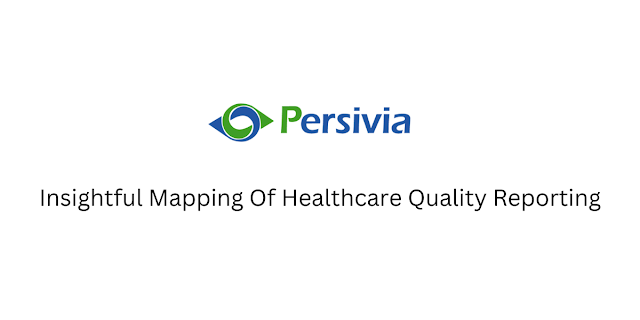Insightful Mapping Of Healthcare Quality Reporting
Measurement in healthcare is a requisite tool for keeping track of progress and helps navigate the route leading to improvement. When the measurement of public reporting is required, the efficacy of measuring processes is constrained without meaningful management and coordination. The billing and administration system in healthcare is responsible for eliciting the metrics used in Quality Reporting. For driving the elements that might be useful in improving these metrics, there is a need to uproot strength from current clinical improvements.
A Quality Reporting Program is designed
to assess the quality of care provided to patients, ensuring that patients get
the proper care at the right time. On the one hand, with the help of quality
reporting, providers can evaluate how often they meet a particular quality
metric. While on the other hand, public reporting helps patients choose the
right place to receive care. Quality Reporting in healthcare has a
positive impact, as it gives a picture of where improvement and alterations are
required.
Critical Challenges to Measuring Quality:
Quality Reporting Program has directed providers' focus towards effectively improving
patient care. Quality metrics allow providers to benchmark their outcomes and
learn the best out of those who turned out to be successful. Several challenges
that emerge during measurement are:
- Healthcare Systems are Unpredictable
The variation in the environment and the
difference among patients make it hard to avoid particular outcomes and measure
their efficacy. The metrics used to measure quality can be affected by diverse
aspects such as treatment type, the patient’s health condition, medical
history, etc. All these factors contribute to involving measurement data.
- Different People Perceive the Meaning of Quality Differently
The patient’s perception of issues or what
they view as a value in the system varies among clinicians and the
organization. For this reason, taking the patients' views is imperative to know
their experience as a core measure of Quality Reporting.
- Clinicians Lack Data Expertise
Inadequate expertise in data collection among
clinicians poses a challenge to accurate measurements. Often, data gathering
expertise is inferred rather than taught, resulting in variations in reporting
and measurement levels.
- Greater Variability and Less clarity
As per recent research, there is a massive
difference in how hospitals collect, record, and report data of patients. The
data didn’t serve as a suitable and comparable metric for hospitals. Since the
measures of safety in healthcare remain blurred and vague owing to such
variations.




Comments
Post a Comment